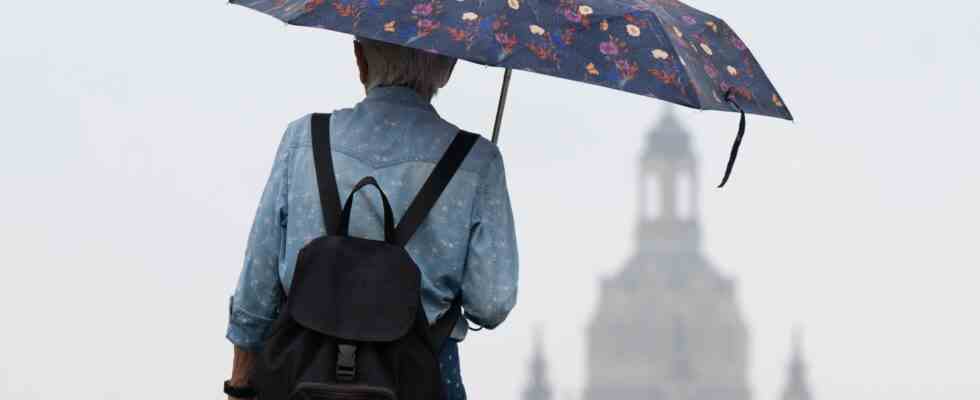analysis
Status: 03.10.2022 07:15 a.m
Democracy lives on trust. But this trust is dwindling, especially in eastern Germany – in politics, in the state. Why? An inventory of the Day of German Unity.
It doesn’t work without trust. But at the moment it is evident that trust in politics is waning. These are times of crisis. This applies once again to eastern Germany, where trust has long been a scarce commodity. This can also be seen in the current protests from left and right in this “hot autumn”.
Figures from the current Germany Monitor, published in the annual report by the Eastern Commissioner, confirm the trend. Accordingly, only 39 percent of East Germans are satisfied with the way democracy works in Germany. In the West it is 59 percent. In the East, only around 32 percent believe that the well-being of the country is important to politicians. In the West it is 42 percent.
A third and final finding from the Germany Monitor: Almost all people in the East rate their living conditions worse than in the West. The annual report says: “There are clear connections between attitudes towards politics and one’s own social situation, one’s own social status, but also the regional features of the respective place of residence.” In the past one might have said: Being determines consciousness.
There is a lack of self-efficacy
A second term stands out in the Germany Monitor, which is more about a feeling: self-efficacy. In psychology, this is understood as the belief of a person that they can successfully master even difficult situations on their own. This requires correspondingly positive experiences.
But these experiences were denied to many people in the East. Structurally, in the GDR it was only intended within narrow limits for people to experience themselves as self-effective. To compensate, the state has relieved them of all existential worries.
Then came the turning point. The secure supply by the state was gone, instead there was a risk of unemployment, residential buildings were privatized, businesses were wound up. Freedom seemed threatening, too demanding: with monetary union, people suddenly found themselves in front of well-stocked shelves, but hardly had enough money in their pockets.
Entrepreneurial spirit often failed in the east because of the trusteeship, the confusion of responsibilities and, last but not least, the principle of return before compensation. The collective experiences of helplessness from the first few years in the Federal Republic left a deep impression. Self-efficacy: none.
Why the skepticism remained
Now the 1990s are long over, and many things have improved since then, some even become good. But despite the money that has flowed, those who want to experience themselves as self-effective, i.e. as active shapers of their lives, still find difficult conditions in large parts of the East: fewer assets, less income and, in most areas, less infrastructure.
And when people look around, they realize that their own people hardly play a role in public and society. In addition, when it comes to anniversaries or historical events, the somewhat different past of the East is only mentioned in exceptional cases (examples: introduction of the birth control pill or television news). As if the GDR and those who lived in it hadn’t existed. Anyone who has ever been emphatically ignored knows that it erodes self-confidence.
But a healthy self-confidence feeds on the experience of self-efficacy, on the experience: I can make a difference, I can survive crises and I am seen. The self-confidence that arises in this way is not the only, but an important source for what this is about: for trust in others, in society, in politics. Or to put it the other way around: If you don’t have self-confidence, it will also be difficult to trust others.
Equal living conditions
The distrust that the disaffected, resigned and hurt people in particular have in the society in which they live does not only make life difficult for them. It is now also endangering democracy. The annual report of the Eastern Commissioner says: “In order to reach them again through political communication and to strengthen democracy, the goal of equal living conditions in all parts of Germany should be given more attention again.”
And both sides are needed for this: the people who take their destiny into their own hands, for example who work in trade unions, associations or initiatives. And a state that is now curbing the unequal distribution of the past, for example through better pay or a higher minimum wage. In times of crisis like these, confidence-building measures are particularly important. Because without trust, democracy cannot survive.

